
"Love Child" is a 1968 song released by the Motown label for Diana Ross & the Supremes. The second single and title track from their album Love Child, it became the Supremes' 11th number-one single in the United States, where it sold 500,000 in its first week and 2 million copies by year's end.
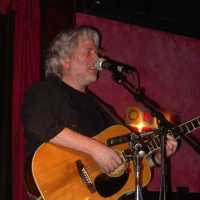
Dean Friedman is an American singer-songwriter who plays piano, keyboard, guitar, and harmonica.

"Shop Around" is a song originally recorded by the Miracles on Motown Records' Tamla subsidiary label. It was written by Miracles lead singer Smokey Robinson and Motown Records founder Berry Gordy. It became a smash hit in 1960 when originally recorded by the Miracles, reaching number one on the Billboard R&B chart, number one on the Cashbox Top 100 Pop Chart, and number two on the Billboard Hot 100 chart. It was the Miracles' first million-selling hit record, and the first-million-selling hit for the Motown Record Corporation.

"Too Much, Too Little, Too Late" is a song performed by singers Johnny Mathis and Deniece Williams. Lyrics and music were arranged by Nat Kipner and John Vallins. The single was a comeback of sorts for Mathis as his last U.S. top 10 hit was 1964's "What Will Mary Say" and his last U.S. #1 hit was 1957's "Chances Are."

"More Love" is a 1967 hit single recorded by the American soul group The Miracles for Motown Records' Tamla label. The single, included on the group's 1967 album Make It Happen, later reissued in 1970 as The Tears of a Clown. Kim Carnes's 1980 cover of the song reached the Top 10 of Billboard's Adult Contemporary and Hot 100 charts.

"The Rapper" is a song by The Jaggerz, written by band member Donnie Iris. Released as a single, it reached No. 2 on the Billboard Pop Singles chart, behind Simon & Garfunkel's smash "Bridge Over Troubled Water" and it was certified Gold by the RIAA in 1970 for selling over a million copies.

"Keep on Singing" is a 1973 song composed by Danny Janssen and Bobby Hart, and was originally recorded by Austin Roberts from the album Austin Roberts. It was released as a single on Chelsea Records and reached No. 50 on the U.S. Billboard Hot 100 and No. 39 on the Cash Box Top 100. In Canada it reached # 79. "Keep on Singing" was best known as a hit single by Helen Reddy in 1974.

"Lonely Night (Angel Face)" is a song written by Neil Sedaka. The song was first recorded by Sedaka and appeared as a track on his 1975 studio album, The Hungry Years. The following year the song was made popular when covered by the pop music duo Captain & Tennille, who took their version to number 3 on the Billboard Hot 100.
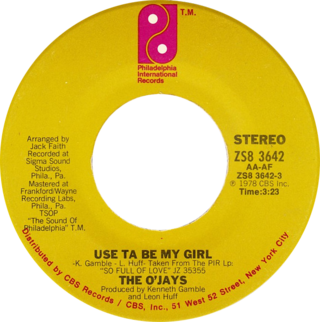
"Use ta Be My Girl" is a song by R&B vocal group The O'Jays. Released from their hit 1978 album, So Full of Love, it became a crossover hit. The song spent five weeks at number one on the R&B singles chart. It also peaked at number four on the Billboard Hot 100 singles chart. "Use ta Be My Girl" became one of the biggest and most familiar hits by The O'Jays. The song has also been certified by the RIAA as a million-seller.
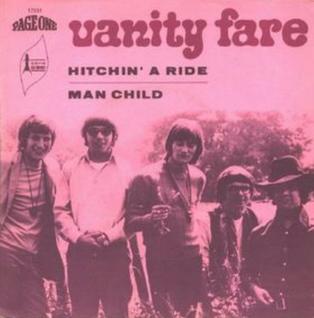
"Hitchin' a Ride" is a song written by Mitch Murray and Peter Callander issued as a single by the English pop/rock band Vanity Fare in late 1969. It reached number 16 on the UK Singles Chart in February 1970 but was a bigger hit in the United States, reaching number 5 on the Hot 100 on June 27, 1970. Billboard ranked the record as the number 14 song of 1970. In Chicago, the record achieved even greater heights, topping the WCFL Big 10 Countdown on 18–25 May 1970, ranking #4 for all of 1970 and ranking #12 on rival WLS Radio 89 Hit Parade on 6 July 1970, ranking #10 for all of 1970. "Hitchin' a Ride" sold a million copies in the United States alone, and it became a gold record.
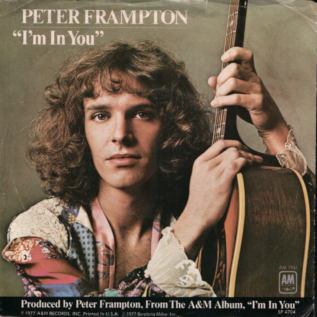
"I'm in You" is the hit song released by Peter Frampton as a single from his album I'm in You, released in 1977. It rose to No. 2 on the US Billboard Hot 100 and No. 1 on the Cash Box Top 100 and in Canada, becoming his most successful single. The song was kept from reaching the top spot on Billboard by Andy Gibb's "I Just Want to Be Your Everything".

"She Did It" is a song written and originally recorded by Eric Carmen in 1977. Carmen's single was a Top 40 hit on the Billboard Hot 100 chart, reaching number 23. "She Did It" was covered in 1981 by actor and singer Michael Damian, who reached number 69 on the Hot 100 with his version.

"You Made Me Believe in Magic" is the title of a 1977 international hit single by the Bay City Rollers, taken from their album It's a Game. The recording, a mid-tempo disco-styled pop tune featuring strings and horns, had its greatest impact in North America, where it was issued as the album's lead single in May 1977 to reach number 10 on the US Hot 100 in Billboard magazine that August. "You Made Me Believe in Magic" was the Bay City Rollers' third US Top 10 hit; the follow-up single "The Way I Feel Tonight" (#25) would mark the group's final Hot 100 appearance.

"Always and Forever" is an R&B song written by Rod Temperton and produced by Barry Blue. It was first recorded by the British-based multinational funk-disco band Heatwave in 1976. Released as a single on December 3, 1977, the song is included on Heatwave's debut album Too Hot to Handle (1976) and has been covered by numerous artists, becoming something of a standard.
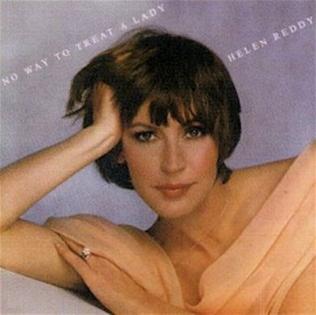
"Ain't No Way to Treat a Lady" is a 1974 written and first recorded by American singer-songwriter Harriet Schock. It was covered by various other artists, and saw its greatest success when it was covered by Helen Reddy, whose 1975 rendition became a top 10 hit.

"Hot Line" is a song recorded by American family group the Sylvers, from their 1976 album Something Special. It was written by Freddie Perren and Kenneth St. Lewis. It became an international Top 10 hit, and is a gold record.

"An Everlasting Love" is a song written by Barry Gibb, performed by Andy Gibb, released in June 1978 as the second single from his second studio album Shadow Dancing. The song peaked at #5 on the Hot 100 on 23 September 1978 and #10 in the UK. "An Everlasting Love" was Gibb's only Top 10 hit in the United Kingdom.
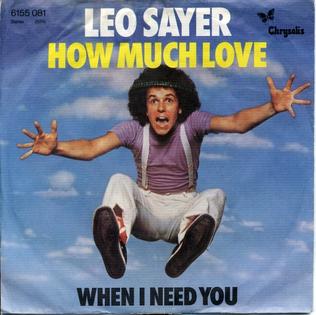
"How Much Love" is a popular song from 1977 by the British singer Leo Sayer. It was the third of three single releases from Sayer's 1976 album, Endless Flight. The song was co-written by Sayer with Barry Mann.

"Love in the Shadows" is an uptempo pop song written and recorded by Neil Sedaka. The song became an international Top 20 hit in 1976.

"Soul Deep" is a song by The Box Tops. It was the third of three singles released from their 1969 Dimensions LP. Lead vocals were provided by Alex Chilton.




















